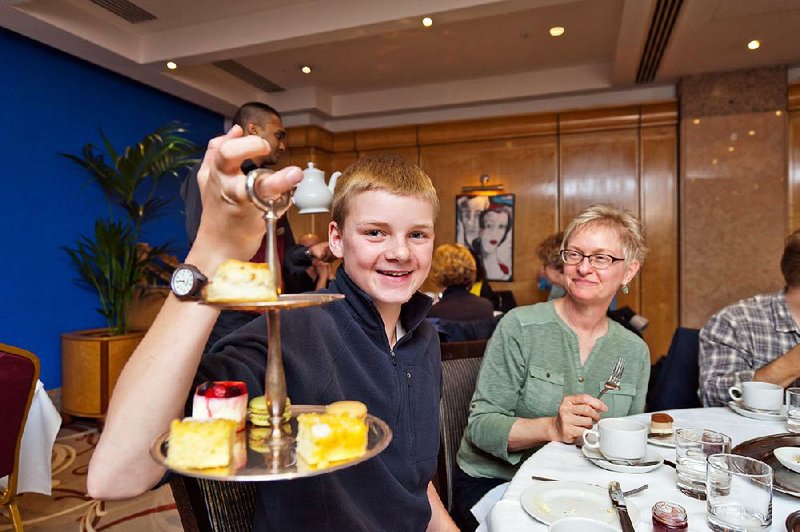Imagine being a teenager forced to spend your summer vacation with robo-tourist Rick Steves (aka "Dad"). My kids, Jackie and Andy, now in their 20s, did that a while ago. I had to think hard about what would make our trip to England educational and fun for travel partners who dubbed the Beatles tour in Liverpool the "most boring" one on our itinerary. Turns out most teens couldn't care less about where Paul McCartney went to grade school. But they were more enthusiastic about the "Bizarre Bath" walking tour in the English spa town of Bath, which provided two hours of jokes and not a bit of history.
High-school students feel that summer break is a vacation they've earned. If your European trip is not their trip, you become the enemy. Make it their trip too by asking for their help. Have your teenagers watch some video clips or flip through the guidebook and point out things they want to see or do. Unlike you, kids may not appreciate the magnificence of a Michelangelo statue or the significance of the Parthenon frieze. They may find a day of shopping or beachcombing more fun than visiting a museum or a ruined abbey.
And keep in mind that for young adults new to travel, a trip abroad is eye-opening exposure to a broader world -- a shifting of perspective that can feel like an emotional earthquake. When you come from a large and powerful country, it's easy to think your way is the norm. But on my first trip to Europe with my parents as a 14-year-old, I discovered that travel is a crowbar, and my hometown perspective was its target. My strongest memories from my first trips are everyday moments and people: Austrian villagers eating bread spread with lard, an old man with a concentration-camp identity number tattooed on his wrist, Norwegian women watching their children play in a fountain. These seemingly mundane memories are pressed into my brain like evocative coins stuck on the mossy ceiling of a wine cellar.
This boundary-expanding experience of travel has little to do with checking sights off a list, so consider your teens' suggestions -- no matter how ordinary or unorthodox -- and make real concessions. Then give them ownership: Encourage them to plan the details of a visit, such as how to get there, whether advance tickets are needed and what everyone in the group should know about the place or experience ahead of time.
Teenagers are usually eager to explore independently. Set a time and place to meet when you arrive at a museum or other sight so they can experience it on their own. Museum audioguides help them get the most out of it. Let them explore the neighborhood around your hotel alone; just make sure they carry a map and the hotel's name and address.
Guided tours and walking tours help in discovering new cities and let teens keep their distance from embarrassing parents. Teenagers might balk if you try to read your book's walking tours aloud while leading the family down the sidewalk. Instead, photocopy the requisite pages for them, or, for those walks covered by my free audio tours, encourage your kids to listen on headphones.
Youngsters will likely want to keep in touch with friends at home using apps such as WhatsApp (very popular in Europe), Snapchat, Google Talk, FaceTime or Skype. Readily available Wi-Fi helps keep online habits inexpensive if your plan doesn't include unlimited data. Otherwise, consider buying an international data plan to avoid excessive roaming charges.
When homesickness sets in, take your teenager to see a movie -- American movies are commonplace. Unless you want the amusement of watching it dubbed into the local language, make sure your screening is in English with subtitles. (In France, look for "VO" in a listing for the original-language version.)
Eating and drinking in Europe may be a highlight for your young travel partners. It's cheap fun to get takeout food such as bratwurst, crepes or fish and chips from a street stand and eat at a park or on the top deck of a tour bus. Be aware that the drinking age varies between 16 and 18 across Europe. Be ready for your teens to point this out (and decide on the family policy before they do). Ordering his or her first glass of wine with dinner at a European restaurant may be a thrilling experience for an American kid.
Watching your child discover a wider world and engage with a new culture can be uniquely gratifying. Besides building memories, your investment in a trip now is a down payment on developing a true citizen of the world. It's great parenting.
Travel on 04/23/2017

